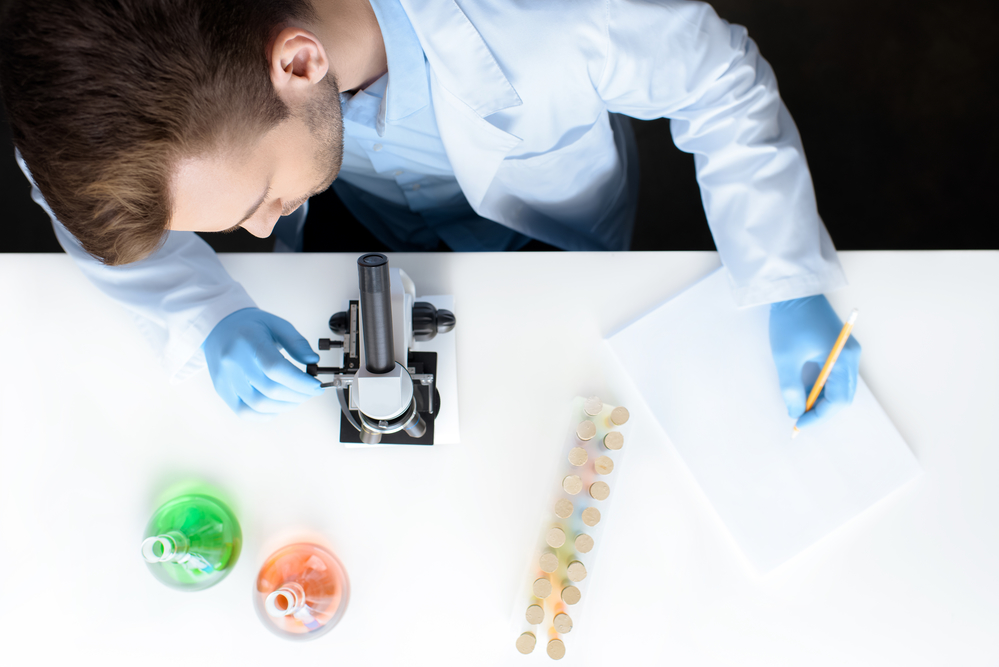Rare ginsenoside benefit: Inhibitory effects of ginsenosides Rg5 on cervical cancer and breast cancer
For a long time, the research on the anti-cancer effects of rare ginsenosides focuses on ginsenoside Rh2 and Rg3. A variety of research shows that ginsenoside Rh2 exerts inhibitory effects on cancer cells with the ability to induce tumor cell apoptosis, reverse abnormal differentiation prevent tumor cell metastasis, enhance efficacy but reduce the toxicity of chemotherapy drugs. Ginsenoside Rg3 is able to inhibit cancer cell differentiation, slow cancer cell proliferation, prohibit cancer cell angiogenesis, restrain tumor cell adhesion and infiltration so that it can prevent tumor cells from growing, spreading and metastasis, exhibiting noticeable anti-cancer properties.
Ginsenoside Rg5 induces cancer cell apoptosis
A study published in Ginseng study magazine shows that rare ginsenosides Rg5 is able to induce cancer cell death in various ways. The test on breast cancer cell in vitro shows that rare ginsenosides Rg5 causes a stagnation of cell cycle during the period of G0/G1 and affects protein related to cell apoptosis, exhibiting the ability to induce cancer cell apoptosis, increase cancer cell inactivation and inhibit cancer cell proliferation. What’s more attractive, ginsenoside Rg3, which shows anti-cancer effects on a variety of cancers such as liver cancer, prostate cancer, glioblastoma cells, exhibits little anti-cancer effects on breast cancer in the study. However, it is reported that the inhibitory effects of Rg5 on liver cancer are four times as strong as that of Rg3. 
Rare ginsenoside Rg5 works on cervical cancer
Another study published in Medical report of molecular reveals that Rg5 exerts inhibitory effects on cervical cancer. Rg5 promotes cancer cell inactivation and inhibits cancer cell proliferation by initiating DNA damage, inducing cancer cell apoptosis. The noticeable anti-cancer activity of Rg5 exhibits potentials of being drugs for cervical cancer.
Rare ginsenoside Rg5 reduces cisplatin-induced nephrotoxicity
Reducing cisplatin-induced nephrotoxicity is another important role of Rg5 in anti-cancer activity reported in a study named influential elements. Cisplatin is one of the most important clinical anti-cancer drugs and widely applied in the chemotherapy treatment of malignant tumors. However, high amounts of cisplatin generate severe nephrotoxicity and there are no drugs that prevent patients from nephrotoxicity generated by cisplatin, which limits the application of cisplatin in cancer treatment. Scientists found in the study that reduces cisplatin-induced nephrotoxicity by inhibiting inflammation and apoptosis, reducing damage to renal tubules.
Scientists said that the discovery about the anti-effects makes it possible for Rg5 to be a new type of anti-cancer drug. With medical research goes in depth, more anti-cancer effects may be discovered by scientists, which will make Rg5 an attractive direction for anti-cancer drug research. Meanwhile, mixing several types of rare ginsenosides to exert a synergistic effect will be a new idea for drug formulation in future since there are many types of rare ginsenosides and their anti-cancer effects vary.
Reference:
https://www.spandidos-publications.com/mmr/11/2/940
http://www.sciencedirect.com/science/article/pii/S1226845314001055


